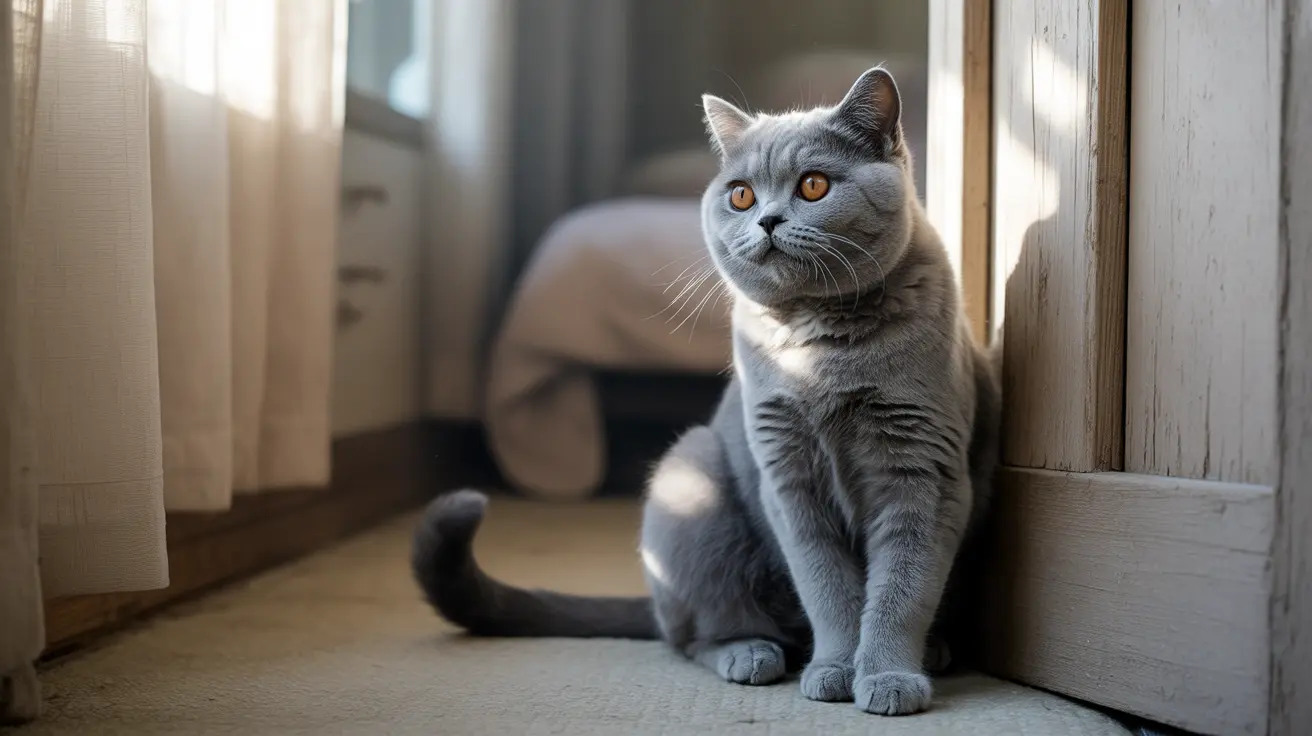If you're consistently being roused from sleep by your feline friend before your alarm goes off, you're not alone. Many cat owners face the daily challenge of early morning wake-up calls from their pets. Understanding why cats exhibit this behavior and learning how to address it can help both you and your furry companion get better rest.
In this comprehensive guide, we'll explore the science behind your cat's morning behavior, identify common triggers, and provide practical solutions to help you reclaim your morning sleep schedule.
The Science Behind Early Morning Cat Behavior
Cats are crepuscular animals, meaning they're naturally most active during dawn and dusk. This evolutionary trait stems from their wild ancestors' hunting patterns, when prey was most abundant during these twilight hours. Despite domestication, this internal clock remains hardwired in our household cats.
Research shows that domestic cats maintain these natural activity patterns even when living entirely indoors, which explains why your cat might become particularly energetic just as the sun begins to rise.
Common Reasons Your Cat Becomes Your Morning Alarm
Hunger and Feeding Schedule
Many cats wake their owners up simply because they're hungry. Their small stomachs empty quickly, and if there's a long gap between dinner and breakfast, they may become uncomfortable and seek food.
Additionally, cats quickly learn to associate certain times with meals. If you typically feed them early in the morning, they'll likely continue to expect food at that time, even on weekends.
Environmental Triggers
Several environmental factors can contribute to early morning activity:
- Increasing daylight
- Changes in temperature
- Morning bird activity outside windows
- Household members beginning to stir
Attention-Seeking Behavior
Sometimes, cats wake their owners simply because they want attention or playtime. If they've learned that morning wake-up calls result in interaction – even negative attention like scolding – they'll continue the behavior.
Medical Considerations
While early morning activity is often behavioral, sometimes it can indicate underlying health issues:
- Hyperthyroidism
- Diabetes
- Cognitive dysfunction in older cats
- Pain or discomfort
- Anxiety
If your cat's morning behavior has changed suddenly or is accompanied by other symptoms, consult your veterinarian for a proper evaluation.
Solutions to Stop Early Morning Wake-Up Calls
Adjust Feeding Schedule
Implement these feeding strategies:
- Feed a substantial meal before bedtime
- Use an automatic feeder for early morning meals
- Gradually shift feeding times later
- Consider multiple small meals throughout the day
Environmental Modifications
Make these changes to your home environment:
- Install blackout curtains
- Provide engaging toys and scratching posts
- Create a comfortable cat bed away from your bedroom
- Maintain a consistent room temperature
Behavioral Training
Consistency is key when modifying your cat's behavior:
- Ignore early morning wake-up attempts
- Reward quiet behavior at appropriate times
- Establish a regular evening play routine
- Never respond to demanding behavior
Frequently Asked Questions
Why does my cat consistently wake me up early in the morning?
Cats wake owners early due to their natural crepuscular nature, hunger, or learned behavior patterns. Their internal clocks are programmed for activity at dawn, and they may seek food or attention at this time.
How can I stop my cat from waking me up for food at dawn?
Use an automatic feeder, provide a substantial meal before bedtime, and gradually adjust feeding times later. Consistently ignore early morning wake-up attempts to avoid reinforcing the behavior.
Is it normal for cats to be most active at sunrise and sunset?
Yes, this is completely normal. Cats are crepuscular animals, meaning they're naturally most active during dawn and dusk due to their evolutionary hunting patterns.
Could my cat's early-morning wake-up calls indicate a health problem?
While usually behavioral, sudden changes in morning activity patterns could indicate health issues like hyperthyroidism, diabetes, or pain. Consult a veterinarian if the behavior changes abruptly or is accompanied by other symptoms.
What are effective ways to train my cat to sleep later in the morning?
Establish a consistent evening routine with play and feeding, ignore early morning wake-up attempts, provide environmental enrichment, and use blackout curtains to minimize light cues. Be patient, as behavior modification takes time.
Conclusion
While early morning wake-up calls from cats can be frustrating, understanding the underlying causes and implementing consistent solutions can help modify this behavior. Remember that changes take time and patience, but with the right approach, both you and your cat can enjoy more restful mornings.






